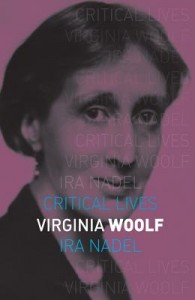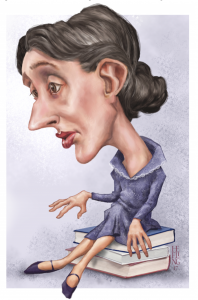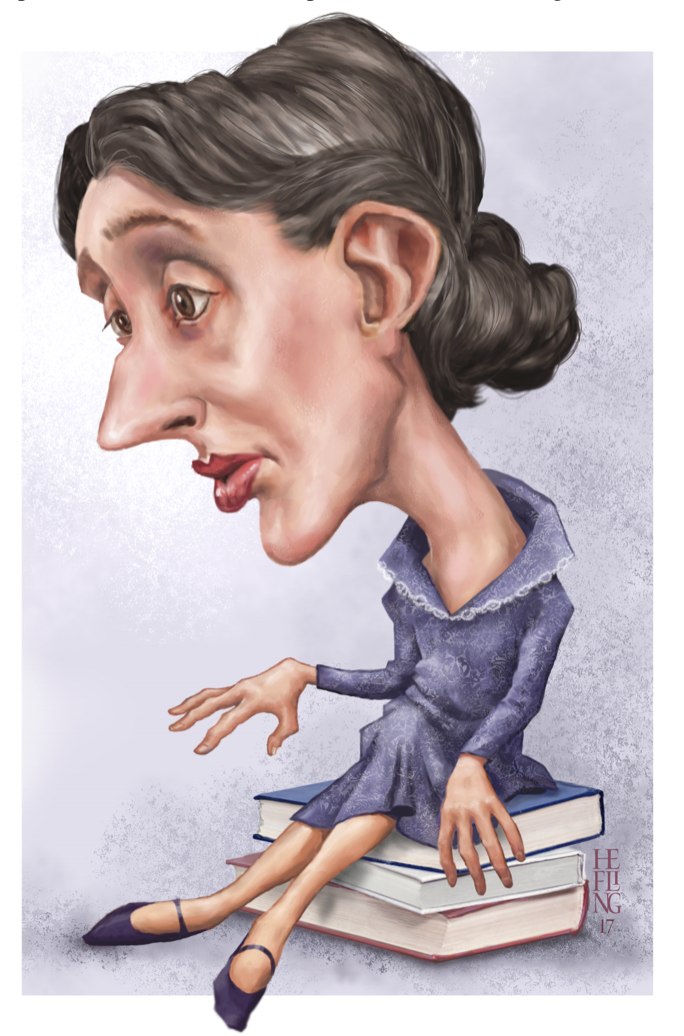 Virginia Woolf
Virginia Woolf
(Critical Lives)
by Ira Nadel
Reaktion Books. 224 pages, $19.
IN THIS CRITICAL BIOGRAPHY of Virginia Woolf, Ira Nadel takes us on a tour of the places of significance in Woolf’s life while drawing connections among these places, her relationships, and her writings. The integration of place and space into the discussion of Woolf’s writings and biography makes for an interesting and informative read, providing avid Woolf readers with a new lens through which to view her works and those less familiar with her work with enough background to get started.
At the outset, Nadel introduces a number of ambitious goals for this biography: to provide readers with a new way to “read Virginia Woolf’s life”; to “examine the formative elements of her personal and authorial identity” as connected to the places where she lived and worked; and to investigate the origins of her breakdowns, including “her attitude towards sex, her uncertain social and political views … the nature of her marriage to Leonard Woolf, her relationship with Vita Sackville-West and the toll of writing upon her state of mind.” An established biographer of modernist authors, Nadel delves into Woolf’s life via her writings, diaries, letters, and the letters of others. And while the links between the locations of importance to Woolf and the development of her writing seem tenuous at times, Nadel makes some useful connections between the places where she lived and worked and settings in her novels.
In highlighting the places where Woolf lived, worked, and socialized, Nadel takes us from the claustrophobic Hyde Park Gate (alluded to in Jacob’s Room) to the intellectually stimulating Gordon Square, among other settings in which Woolf wrote. Each chapter begins with an introduction to the home in which Woolf resided during the time period to be discussed, and from there Nadel discusses her writings, relationships, and mental health during that time.
 In discussing Woolf’s involvement with the Bloomsbury group, Nadel focuses not only upon its complicated social dynamics but also on the ways in which it contributed to Woolf’s development as a writer, particularly as a critic and essayist. From his close reading of Woolf’s diaries, letters, and other primary sources, Nadel is able to trace how individual members of the group impacted her reading habits and ways of thinking, including her less famous husband, Leonard Woolf. This is not to say that these influences were uniformly positive. Nadel highlights instances of anti-Semitism in her writing, despite the fact that Leonard Woolf was Jewish. Virginia’s conflicted relationship with Leonard is explored, especially as it manifested itself in Woolf’s novels later in their marriage. Nadel also points to Woolf’s complicated relationship with political activism, noting her short-lived involvement in the suffrage movement, juxtaposed with her authorship of numerous feminist tracts, most famously “A Room of One’s Own.”
In discussing Woolf’s involvement with the Bloomsbury group, Nadel focuses not only upon its complicated social dynamics but also on the ways in which it contributed to Woolf’s development as a writer, particularly as a critic and essayist. From his close reading of Woolf’s diaries, letters, and other primary sources, Nadel is able to trace how individual members of the group impacted her reading habits and ways of thinking, including her less famous husband, Leonard Woolf. This is not to say that these influences were uniformly positive. Nadel highlights instances of anti-Semitism in her writing, despite the fact that Leonard Woolf was Jewish. Virginia’s conflicted relationship with Leonard is explored, especially as it manifested itself in Woolf’s novels later in their marriage. Nadel also points to Woolf’s complicated relationship with political activism, noting her short-lived involvement in the suffrage movement, juxtaposed with her authorship of numerous feminist tracts, most famously “A Room of One’s Own.”
Woolf’s relationship with Vita Sackville-West is accorded somewhat brief treatment for whatever reason. Considering the important role that this relationship played in Woolf’s life and work—Vita was the inspiration for the central character in Woolf’s novel Orlando: A Biography—four pages seem like not enough, particularly when compared to the in-depth analyses of Woolf’s friendships with various men in her life. The rumored intimate relationships between Woolf and other women with whom she was friends are left unaddressed. While this omission may not have been so noticeable at one time, Woolf’s work is now generally included in the LGBT canon, so this oversight is rather glaring.
Taken alongside other Woolf biographies, like those by Quentin Bell, Hermione Lee, and Julia Briggs, Ira Nadel’s biography is shorter and more accessible, though there are some evident omissions. As a Critical Lives biography, its aim is to provide readers with a broad understanding of her life and work, which this volume admirably does, and it even manages to dig up some shards for future explorations of her writings.
Jamie M. Jones is a freelance writer and a professor of rhetoric, composition, and literature.






